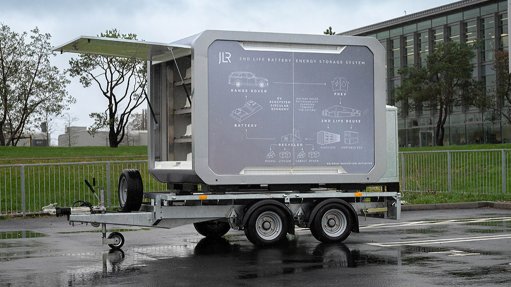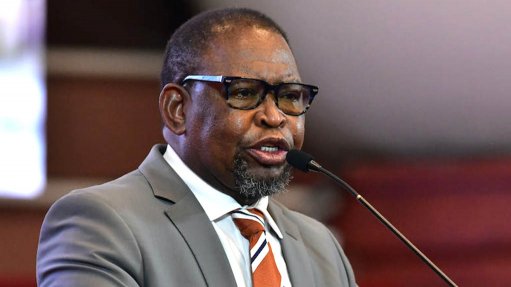Sub-Saharan Africa needs a ‘gas economy’
This article has been supplied as a media statement and is not written by Creamer Media. It may be available only for a limited time on this website.
Natural gas should not be overlooked as a key solution to several sub-Saharan African energy challenges
In the rush to adopt renewable energy, Africa may be overlooking the cost savings, efficiencies and lifestyle enhancing properties of gas, say experts participating in the upcoming Africa LPG and CNG Summit and expo in Johannesburg.
Over 500 international gas stakeholders will converge at Emperors Palace for the Summit on 11 – 12 July, to focus on challenges and opportunities for LPG and CNG in Africa.
Niall Kramer, CEO of the South African Oil & Gas Alliance (SAOGA), says "The world has a glut of gas, prices per MMBTU are low and we may still be sitting on catalytic opportunities to find and produce oil and gas across sub-Saharan Africa.”
While renewables are creating jobs and opportunity, and the prices have come down, he says, “What do we do when the sun is not shining and the wind’s not blowing? Gas can be switched on quickly and is an ideal complement to renewables. Natural gas (initially imported and possibly from indigenous supply later) can power industrial growth and enable the responsible viability of renewables. Bringing gas into SA is a first, but large, step for building a gas economy and a ‘renewables-gas’ energy system. Then once the exploration legal framework is finalised, assuming attractive commerciality in the Mineral and Petroleum Resources Development Amendment Act (MPRDA) and market conditions, exploration work could start up again and support economic and employment opportunities.”
Kramer says: “Emerging economies need energy and fossil fuels and renewables will undoubtedly play major roles. Gas, both imported and produced on the continent, will be a large part of that. The real advantages of gas are that it is plentiful and affordable, as well as having a lower (roughly half) the CO2 impact. LPG is one element of a larger gas economy. The other elements are importing LNG and using that in power and industry and also exploring for indigenous SA gas.”
Overcoming SSA challenges
Renzo E. Bee, Chairman of the Policy, Regulation & Development Advisory Group at the Global LPG Partnership (GLPGP), says while North Africa is highly developed in terms of LPG adoption, much of sub-Saharan Africa is completely under-developed.
“In North Africa, the average LPG consumption is 50Kg per capita per annum. In sub-Sharan Africa, the average is less than 3kg per capita.
This is in spite of the fact that LPG is cleaner, cheaper and more effective than most of the cooking fuels widely in use across SSA,” he says. Bee says research carried out in Cameroon found that the total cost of cooking with charcoal or wood for a family of five was around 46 Euro per month, whereas LPG costs around 10 Euro per month. In addition, because LPG is clean and a highly efficient fuel, families cooking with LPG were able to cook meals faster and more regularly.
Perceptions that LPG is more expensive and that renewables present the only solution to power challenges hamper adoption; but the single biggest challenge in the way of LPG uptake across sub-Saharan Africa is cylinders, says Bee. “The private sector won’t invest in more cylinders if their investment is not secured. And as long as the global World LPG Association (WLPGA) best practice models around ownership and maintenance of the cylinders is not enforced, there is little incentive for the private sector to invest. The cylinders must be widely available as a first step, before we consider terminals and other infrastructure.”
David Tyler, Director of the World LPG Association, agrees that protection and management of the cylinders is a key factor in expanding LPG business in SSA. “One of the unique properties of LPG is that the packaging costs more than the contents. So cylinders and overall infrastructure are crucial in ensuring accessibility and affordability of LPG across the region. Getting LPG into sub-Saharan Africa in a way that isn’t prohibitively expensive is a challenge.”
However, Tyler says there have been encouraging innovations coming into the market to overcome the affordability issue. “In India, Hindustan Petroleum has pioneered community village kitchens to lower the cost of LPG cooking for households.
And we are starting to see groundbreaking IoT technologies emerging in this space. In Kenya and Tanzania for example, mobile innovations are being used to put LPG within reach of the man on the street.” One innovation, Kenya’s PayGo Energy, allows consumers to access LPG on a pay-as-you-go basis, topping up using a smart meter and mobile money.
These experts will be among several international and local LPG stakeholders participating in the upcoming Africa LPG Summit 2017.
The conference and exhibition will be staged at Emperor’s Palace in Johannesburg from 11 – 12 July. The event is presented by the international LP GAS SUMMIT with the support of the South Africa Oil & Gas Alliance, the World LPG Association, the Petroleum Institute of East Africa and the Global LPG Partnership.
For more information go to www.lpgsummit.com
Comments
Press Office
Announcements
What's On
Subscribe to improve your user experience...
Option 1 (equivalent of R125 a month):
Receive a weekly copy of Creamer Media's Engineering News & Mining Weekly magazine
(print copy for those in South Africa and e-magazine for those outside of South Africa)
Receive daily email newsletters
Access to full search results
Access archive of magazine back copies
Access to Projects in Progress
Access to ONE Research Report of your choice in PDF format
Option 2 (equivalent of R375 a month):
All benefits from Option 1
PLUS
Access to Creamer Media's Research Channel Africa for ALL Research Reports, in PDF format, on various industrial and mining sectors
including Electricity; Water; Energy Transition; Hydrogen; Roads, Rail and Ports; Coal; Gold; Platinum; Battery Metals; etc.
Already a subscriber?
Forgotten your password?
Receive weekly copy of Creamer Media's Engineering News & Mining Weekly magazine (print copy for those in South Africa and e-magazine for those outside of South Africa)
➕
Recieve daily email newsletters
➕
Access to full search results
➕
Access archive of magazine back copies
➕
Access to Projects in Progress
➕
Access to ONE Research Report of your choice in PDF format
RESEARCH CHANNEL AFRICA
R4500 (equivalent of R375 a month)
SUBSCRIBEAll benefits from Option 1
➕
Access to Creamer Media's Research Channel Africa for ALL Research Reports on various industrial and mining sectors, in PDF format, including on:
Electricity
➕
Water
➕
Energy Transition
➕
Hydrogen
➕
Roads, Rail and Ports
➕
Coal
➕
Gold
➕
Platinum
➕
Battery Metals
➕
etc.
Receive all benefits from Option 1 or Option 2 delivered to numerous people at your company
➕
Multiple User names and Passwords for simultaneous log-ins
➕
Intranet integration access to all in your organisation


















